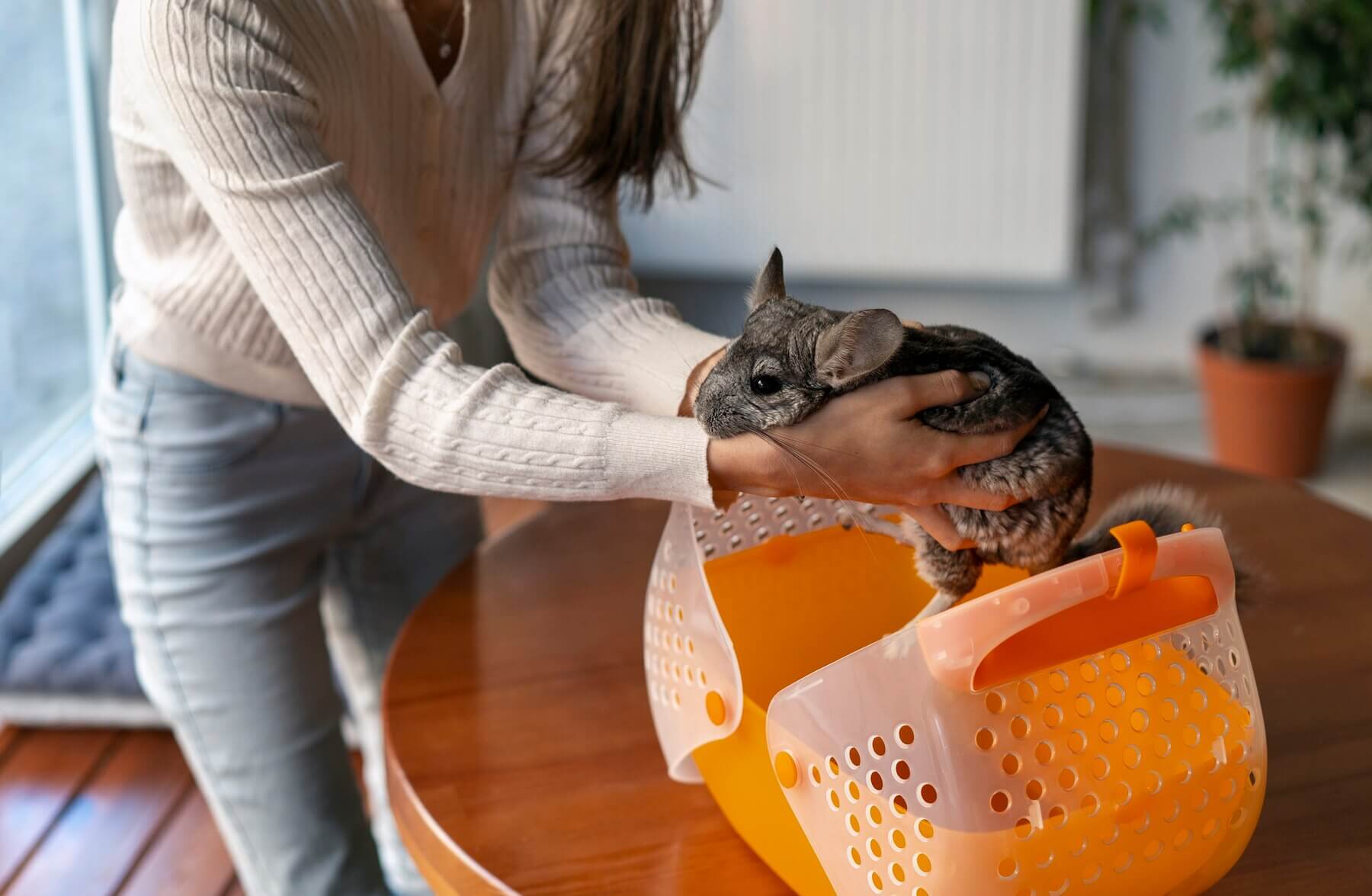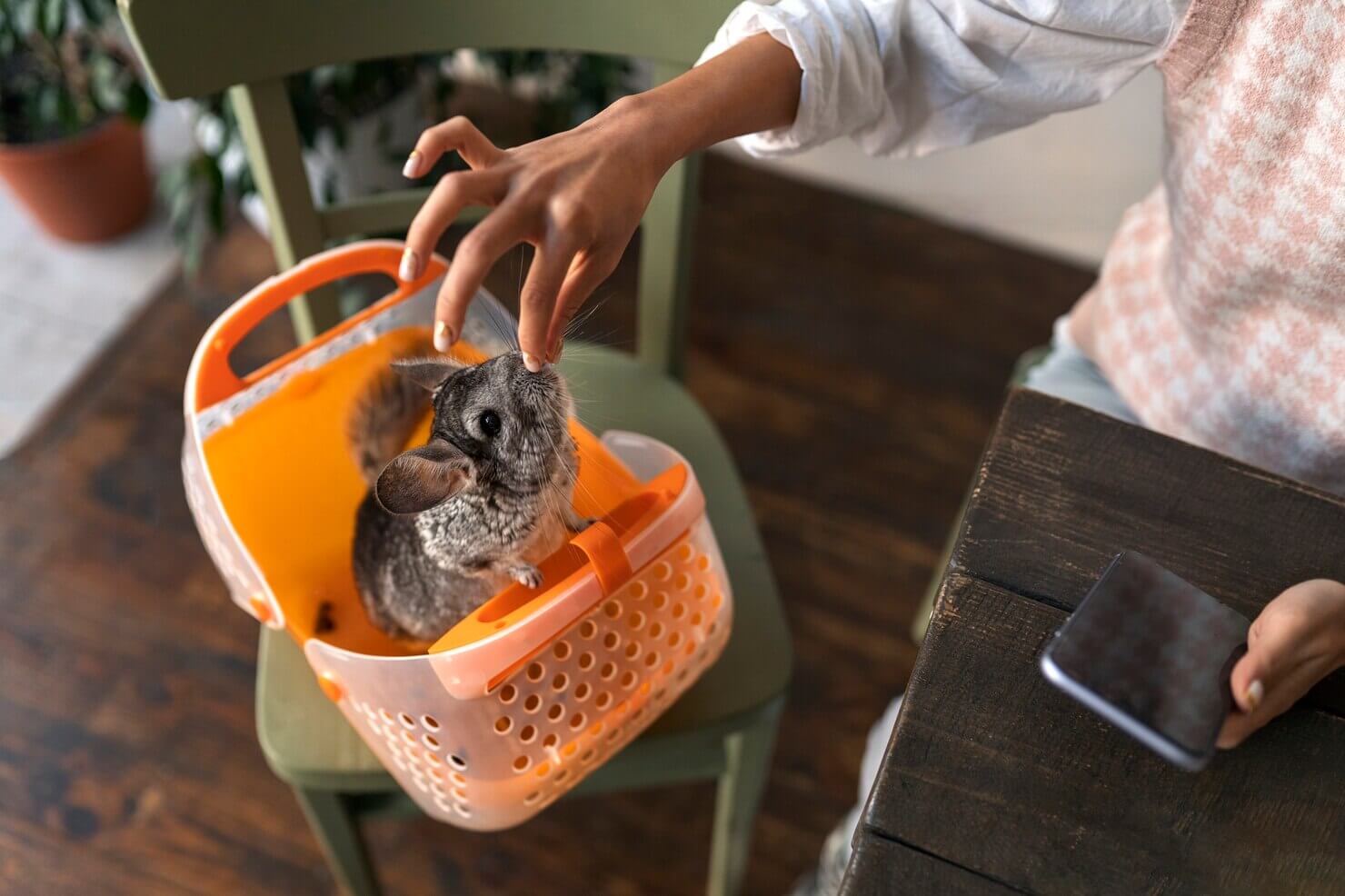Chinchillas are charming and active pets known for their soft fur and lively personalities. To provide the best possible environment for your chinchilla, selecting the right cage is paramount. Chinchillas are highly energetic and need ample space to move, play, and exercise. In this comprehensive guide, we’ll explore the essential considerations for choosing the perfect cage for your chinchilla, including size, setup, and other crucial factors that contribute to their well-being.
Why Cage Selection Matters
Selecting an appropriate cage is vital for several reasons:
- Space for Activity: Chinchillas are naturally active and love to jump and climb. A spacious cage allows them to exercise and engage in natural behaviors.
- Health and Comfort: A well-ventilated cage with adequate space helps prevent respiratory issues and allows your chinchilla to live comfortably.
- Behavioral Needs: Chinchillas are intelligent and need mental stimulation. The cage should provide opportunities for exploration and enrichment.
Cage Size
The size of the cage is the most critical factor to consider. Chinchillas require a roomy enclosure to thrive. Here are some guidelines for selecting an appropriately sized cage:
- Minimum Dimensions: The minimum recommended cage size for a single chinchilla is approximately 24 inches by 24 inches by 24 inches (61 cm x 61 cm x 61 cm). However, larger is always better.
- Multi-Level Cages: Chinchillas benefit from multi-level cages with platforms, shelves, and ramps to utilize vertical space.
- Room to Jump: Chinchillas are excellent jumpers. Ensure that the cage provides sufficient vertical space for them to hop and leap around.
- Consider a Chinchilla Condo: Some chinchilla owners opt for custom-built “chinchilla condos,” which are spacious enclosures that allow for ample movement and activity.
Cage Bar Spacing
Chinchillas are small and agile, which means that the spacing between cage bars is crucial. Here’s what to look for:
- Bar Spacing: Choose a cage with bar spacing no more than 1 inch (2.5 cm) apart. This prevents your chinchilla from squeezing through or getting stuck.
- Horizontal Bars: Chinchillas prefer horizontal bars for climbing. Horizontal bar placement encourages climbing and exploration.
Cage Material
Cage material impacts both durability and hygiene:
- Metal Cages: Metal cages are sturdy and easy to clean. Look for cages with non-toxic, powder-coated finishes to prevent chinchillas from ingesting harmful substances if they chew on the bars.
- Wire Floors: Avoid cages with wire flooring, as this can lead to foot and leg injuries. Provide solid or wire-mesh flooring covered with a soft, dust-free substrate like kiln-dried pine or aspen shavings.
Location and Temperature
Consider the placement of the cage:
- Avoid Drafts: Place the cage away from drafty areas to prevent respiratory issues, but ensure proper ventilation.
- Temperature: Chinchillas are sensitive to heat. Keep the cage in a cool room, ideally between 60-70°F (15-24°C).
- Avoid Direct Sunlight: Avoid placing the cage in direct sunlight to prevent overheating.
Cage Accessories
Enhance your chinchilla’s living environment with appropriate accessories:
- Hide Box: Provide a hide box or shelter where your chinchilla can retreat for privacy and security.
- Platforms and Shelves: Include multiple platforms and shelves at different levels to encourage climbing and jumping.
- Chew Toys: Chinchillas have continuously growing teeth and need safe chew toys to prevent dental problems.
- Dust Bath: Chinchillas require regular dust baths to maintain their fur. Provide a dust bath container filled with chinchilla dust (not sand) for this purpose.
Maintenance and Cleaning
Regular maintenance is essential:
- Daily Cleaning: Remove uneaten food, soiled bedding, and clean the water bottle daily.
- Weekly Cleaning: Perform a more thorough cleaning, including changing bedding, scrubbing cage components, and sanitizing the cage.
Final Thoughts
Choosing the perfect cage for your chinchilla is a significant step in ensuring their health and happiness. A spacious, well-ventilated cage with appropriate bar spacing, comfortable flooring, and engaging accessories will provide your chinchilla with a secure and stimulating environment. Regular maintenance and proper care are essential to keeping your chinchilla’s cage clean and safe.
Remember that chinchillas are social animals and thrive with companionship. Consider adopting two chinchillas to keep each other company, but be prepared for additional space requirements. With the right cage and care, your chinchilla can enjoy a long, happy, and active life as a cherished member of your family.




